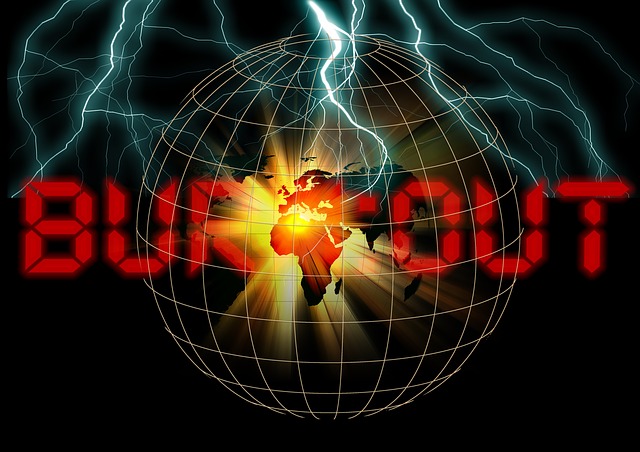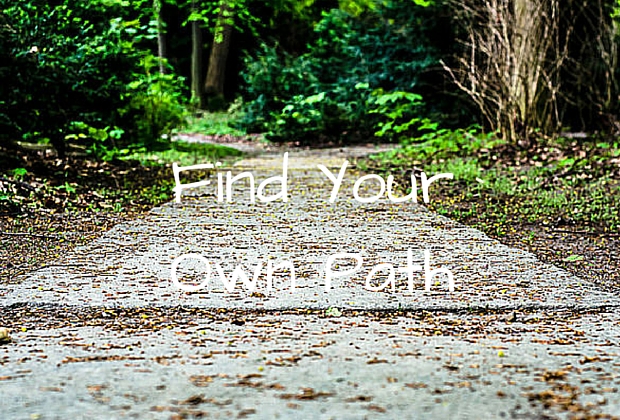21st Century Burnout

2008 was a dumpster fire. I was getting divorced smack dab in the middle of the global financial crisis. I’d built a company where I’d been living my professional dream for seven years. When my clients started to dwindle because their money was evaporating, my financial situation took a severe turn for the worst. I was raising my young son, and I had a massive mortgage. My bills were stacking up like a house of cards. I needed predictable income. I was forced to make the very tough decision to return to the rat race of a world I’d chosen to leave years before-corporate America.
Not many US companies were hiring back then. The business landscape was uncertain and the financial markets had ruined millions of peoples lives. I took the first thing I was offered. Desperate times, desperate measures. I went to work in a cube, for a heartless manager who valued metrics and treated people like dispensable commodities. I earned less money than I had in college and I was working in the most toxic environment I’d ever experienced. I spent 40 hours a week feeling like I was serving a sentence with no end in sight.
I felt like I was in quicksand. I cried every morning on my commute into the office. I felt like I couldn’t breathe from the moment I walked through the doors. I became riddled with anxiety. I lost sleep. I stopped practicing yoga. I became withdrawn and stressed. I felt numb, except for when I was spending time with my son. This went on for 16 months until I had enough and made some big changes in my life. I didn’t realize until years later that I was teetering on the edge of what the World Health Organization describes as “burnout”. I understand now that I had a brush with something very serious.
Burnout is now listed as a classified diagnosis. It’s workplace specific and it’s got a massive price tag when it comes to people and business-roughly $322 billion globally. The causes of this nasty beast are things like extreme chronic stress, poor leadership, excessive workload, unfair compensation, disconnection from the value you bring to the work you do, a lack of balance and toxic working conditions. People with burnout suffer from extreme exhaustion and disengagement. They become cynical and their performance at work tanks. Burnout has adverse effects on your body and mind that can last for months, even years.

This is an important point of risk and concern as we think about the late Millennial and Gen Z folks who are early or brand new in their careers. These two groups currently represent about 43% of the US population! I’ve been keeping a close eye on Millennial/Gen Z employees over the last few years, as I’ve been working. Here’s what I know. They’re a socially aware, eager and passionate bunch of digital natives. When they set their mind to something and come together, they can change the world with their determination and their energy. If they’re fresh out of school, they tend to feel lucky to have a job that enables them to live on their own.
I’ve also noticed that they generally suffer from a sense of disconnection-or not understanding where their efforts matter. They struggle with balance between their personal and professional lives. They’ve become accustomed to 24×7 accessibility. They have a fear of not doing enough and a fear of getting fired if they unplug on the weekends or enjoy the vacation time they’ve earned. They work long hours and they rarely turn off their cell phones. As a whole, they tend to be more anxious than the Gen X and Boomer crowd.
These young people are stressed and distracted from digital overload. (Afterall, they have supercomputers in the palm of their hands!) They spend their days shifting quickly from one thing to the next-multitasking, only to realize they have mounds of unfinished work at the end of the day. They work well into the evening, connected to their screens and the next day, the cycle repeats itself.
If you pause here and reflect on what I’ve shared, you’ll realize these groups already have some of the markers that make them prime for experiencing burnout. Our corporate culture, their choices and their habits are the culprits.
Here’s the big picture as we think about the implications of burnout on our society. We’re living longer than generations that came before us. We’re also spending a large chunk of our lives working with the average American logging about 90,000 hours over their lifetime. These two generations will be our future leaders. They will influence cultural patterns for the way we live and work for the next 30-50 years. What do you want those years to look like?

A new path So, we know the causes, the symptoms, the impact and the risks of burnout. The question becomes how do we avoid it. We have to start with ourselves. We have to rethink what we value. Then, we have to change how we live, how we work and what we tolerate if we want to live long, happy, healthy lives absent the burnout monster. Here are a few very powerful decisions you can make, right now.
Slow down.
We live in a culture of “more” and most of us are moving way too fast. Your body and mind is tightly coupled which means when your mind is constantly spinning, your nervous system responds in kind, leaving you feeling anxious, overwhelmed, stressed. Your focus suffers. Sound sleep goes out the window. Slowing things down begins with creating a calmer rhythm for your mind. The simplest way to change your pace is to adopt and commit a practice of stillness with focused breathing throughout your day.
–Start here: First thing in the morning, before your feet hit the floor, before you grab your phone, sit comfortably. Close your eyes. Take six breaths inhaling to a slow count of 4 and exhaling the same way. Jot down a few words about what you notice: how did you sleep, how you feel, what are you thinking about? Repeat at noon, at the end of your workday and before you go to sleep.
Insist on balance.
Balance is a critical part of your overall health, happiness and success. It can be really tough to find, especially now. If your work-life balance was suffering BC (before COVID) it’s likely gotten worse as our sanctuaries have become our offices, our schools, our everything.
-Start here: Set a firm start and end to your workday. Clearly set the expectation for your work day with your team and management. You’ll be more engaged, get more accomplished in less time and you’ll enjoy a more fulfilling life overall.
Unplug.
Just because you can work from anywhere, doesn’t mean you should work everywhere. Let’s face it. Technology has made it possible for you to be “on” 24×7 BUT it’s your choices that are causing you to stay connected. Shift gears.
-Start here: Set your phone to “do not disturb” after work. No peeking at work email either. Set a time to unplug every weekday night. In other words, choose a time to stop looking at your phone or any other screen. Grab a book, take a walk, talk with friends, play a board game. Your brain needs a rest.

Reflect.
Maybe you’ve been plugging along and you’ve started to realize you don’t enjoy what you do. Maybe you’re working in a toxic environment. Or maybe you feel stuck. You’re not stuck. You’re just caught in a loop. This is a great time to pause, noodle and get a little perspective.
–Start here: Think about where you are and what’s causing you to feel the way you do. If you understand it, you can do something about it. Ask yourself questions like these:
- Are you doing work you enjoy?
- Are you working to pay the bills or for a title that makes someone else happy?
- Do you understand why your efforts matter?
- Are you proud of what your company does?
- How connected do you feel to your team?
- What have you been tolerating?
- Do you feel respected and valued?
- Do you have an open line of healthy communication with your manager?
- Think about the flow of your days: Are you multitasking?
- Continually scheduled in back to back meetings?
- What sort of expectations have you set with your team and leadership about the hours you are willing to work so you can strike a balance?
- Would exploring a different role in your company offer you a better working experience?
Pivot as needed.
Maybe your #4 list was a lightbulb moment. Maybe you’re just ready to try something new. The surest way to figure out what you want is to manifest it!
t making a list of what you value and what you want. That list will become your roadmap to clarity and potentially, a new gig. Consider questions like these:
If I could do anything professionally, what would it be? How do I want to spend the hours of my workday for the next 20 years? What kinds of things do I want to contribute or create? Why? What kind of company do I want to work for and why? What do I value? How many hours do I want to work? Do I want to travel, work remotely, on a team or solo? What kind of leadership do I value? How much do I want to earn? You get the idea.
Burnout can be avoided if we understand what causes it, what it looks like and how to prevent it. The path we’re on can change but it will depend on every one of us. We have to change the way we think about our lives and approach those 90,000 hours we spend working. You have a place to start. What choices will you make for yourself?
This guest post was authored by Cole Baker-Bagwell




